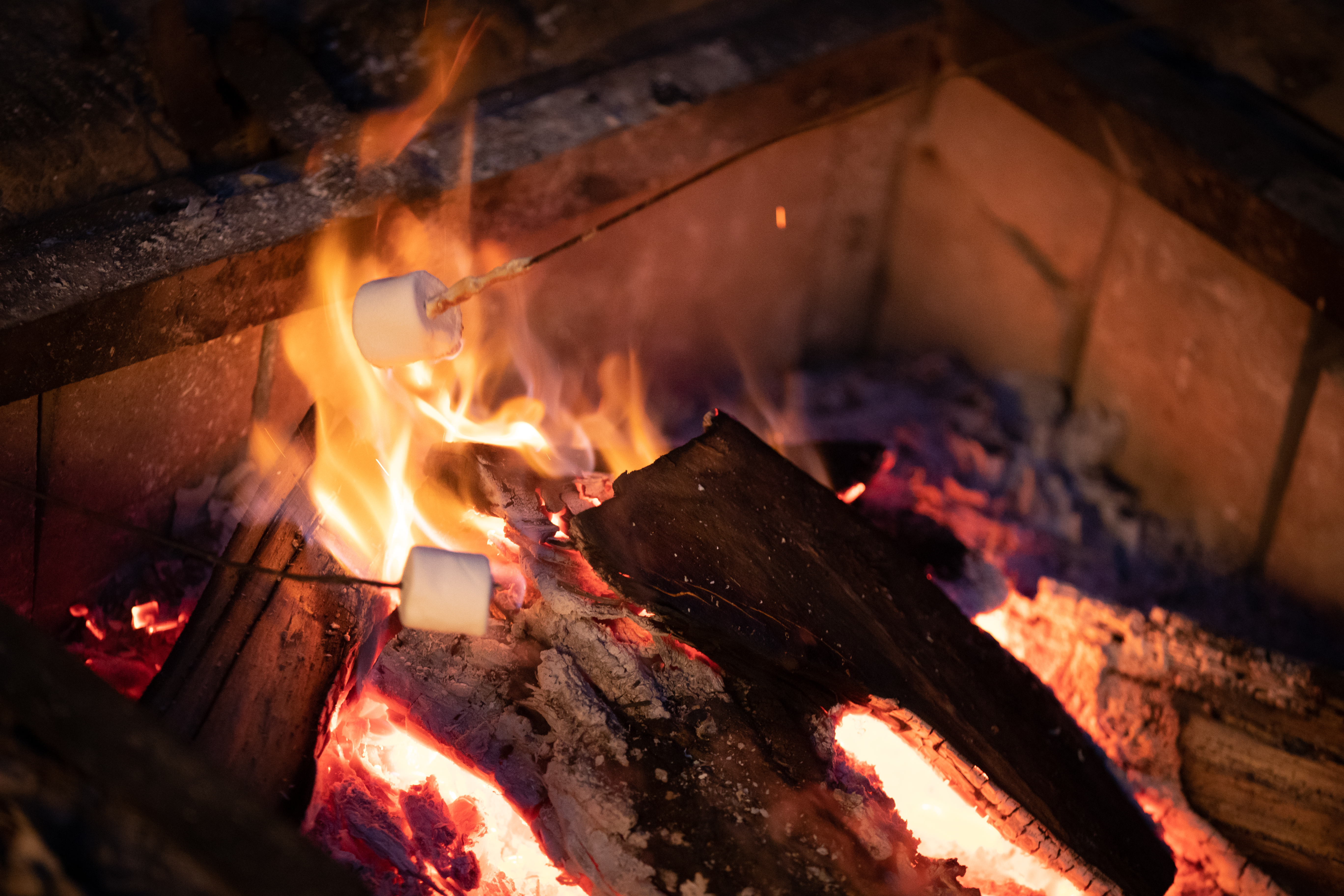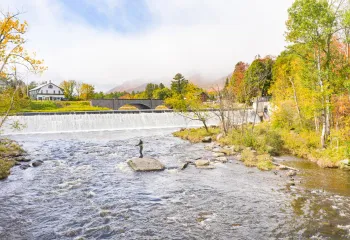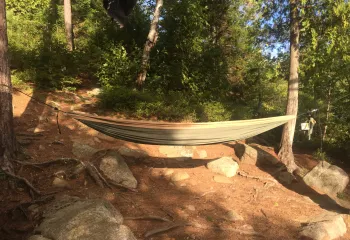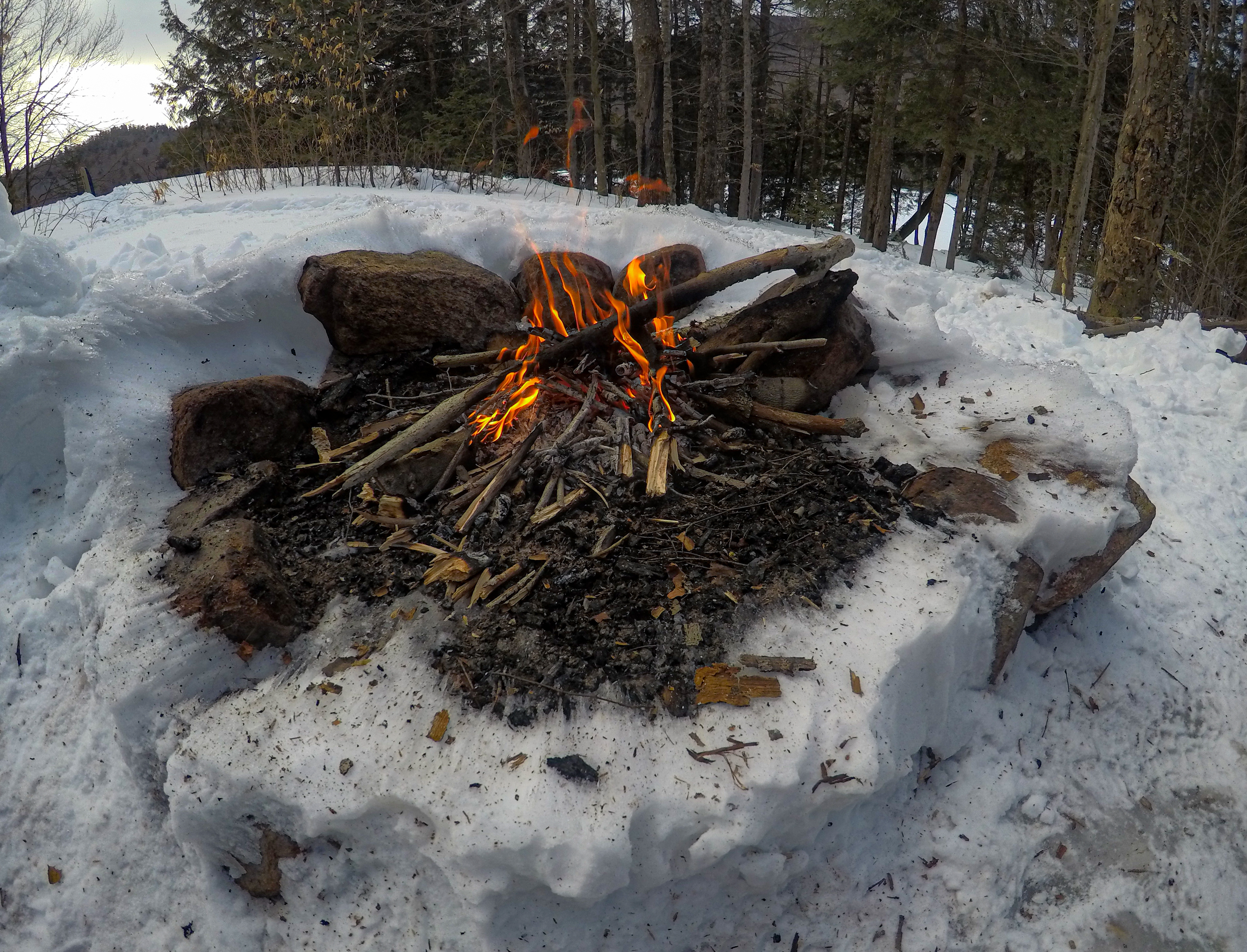
When there’s snow on the ground, I think it’s a safe bet that most people would rather be wrapped in a blanket, sheltered from the cold winter by the insulating walls of their homes, cell phone idling nearby while the pages of a good book almost turn themselves the story is so captivating.
For some people, though, winter camping is a way to escape the monotony of it all and relish the silence of the woods, interrupted only by the sounds of falling snowflakes. The bugs are gone, you don’t have to worry about that pesky humidity, and there are less people around. What more could you ask for?
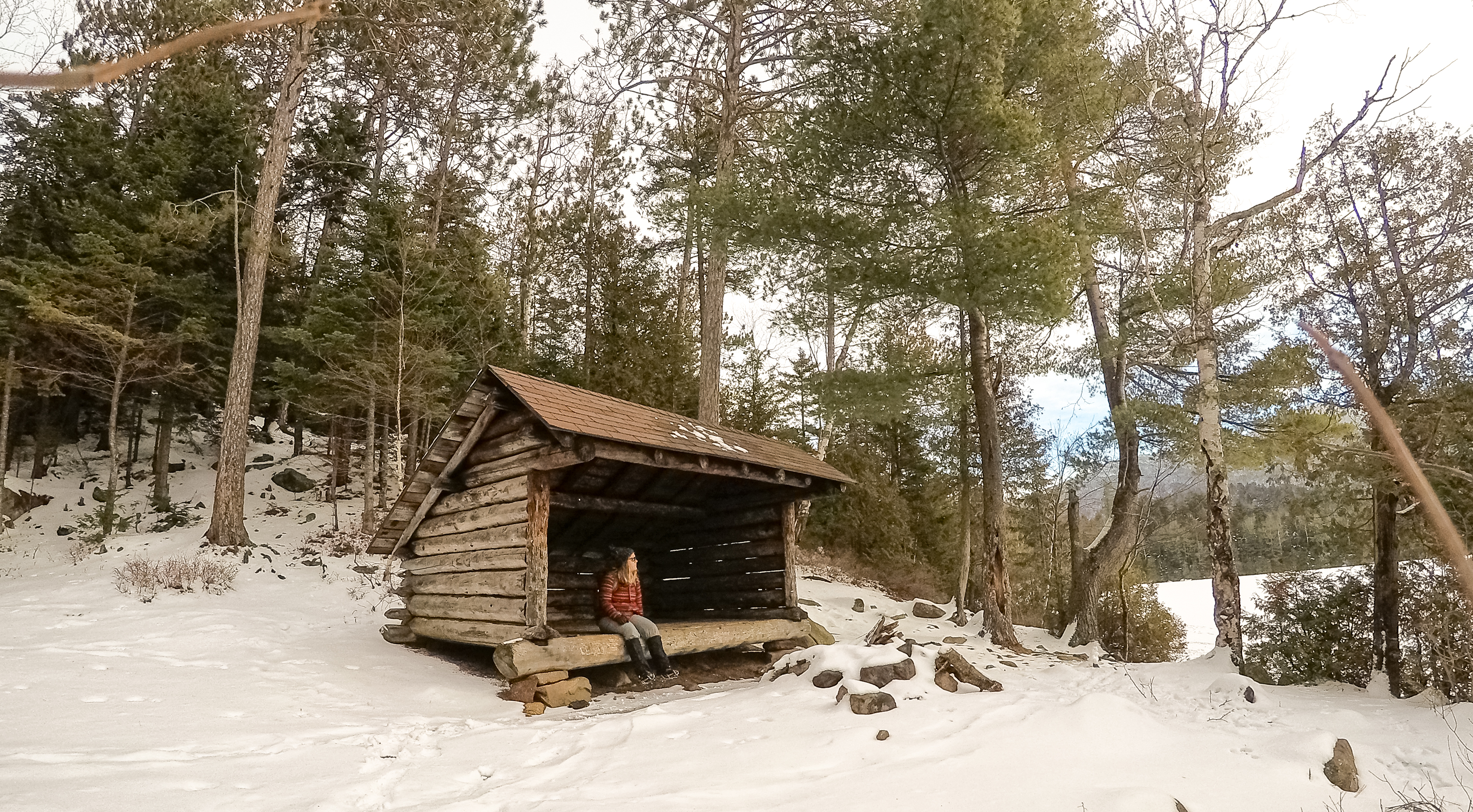
Camping in the winter is not something to take lightly and comes with a lot of preparation, but if you’re prepared it will surely be a fun experience you won’t soon forget.
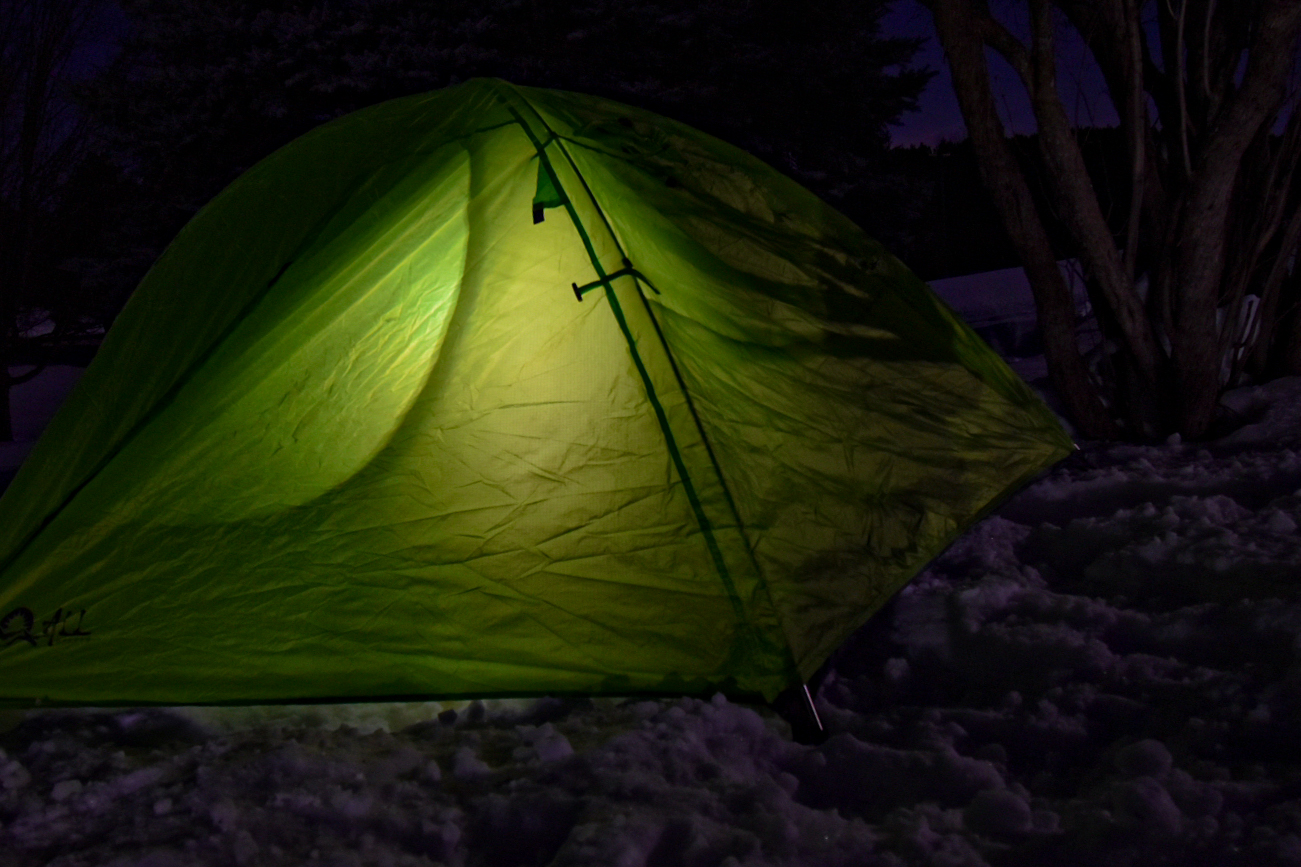
Getting started
I’m not too proud to admit my first winter camping trip was not enjoyable. My gear was subpar and made for an uncomfortable night. Lessons learned. Needless to say, for my next foray into winter camping I was much more prepared and was able to sleep peacefully cozied up in a sleeping bag rated for colder temperatures.
Here’s a list of essential gear and some background:
- There are lean-tos in the Whiteface Region, but if you want to use a tent, there are tent sites as well. For milder nights, a 3-season tent should suffice, but a 4-season tent will have sturdier poles and heavier fabric, making it less susceptible to strong gusts of wind or heavy snows.
- Make sure your backpack is large enough to fit all your extra warm layers and gear.
- Your sleeping bag should be rated at least 10-degrees Fahrenheit lower than the coldest temperature predicted. You can vent the sleeping bag if you get warm, or add a liner for additional warmth.
- A good sleeping pad is essential for comfort and warmth at night! These pads are rated by R-value, which is a measurement of insulation. The higher the R-value, the better the pad insulates. Pro-tip: try two pads when winter camping! A foam pad on the ground with an inflating pad on top is my go-to!
- Carry a good backpacking stove with backup fuel for cooking.
- This one is super important. Have proper clothing, including mid- to heavy- weight base layers, an insulating layer, and a waterproof outer layer. No cotton allowed for clothes or socks. Don’t forget those hats and gloves (pack spare dry ones) as well! Pack extras of everything in case something gets wet or is needed for extra warmth.
- Backcountry camping will likely include a snowshoe or ski into the site. Make sure your boots are waterproof and insulating. A nice pair of gaiters can also help keep snow out and might keep you a little warmer.
- There is definitely more gear and supplies you’ll need to bring (like food!); this is not a complete list. The Department of Environmental Conservation advises that hikers, campers, snowshoers, skiers, and all outdoor recreators Hike Smart by following a responsibility code and carrying proper gear.
- Speaking of food, make sure yours is stored properly. Sure, in winter bears are probably hibernating, but there are other critters who might like to share your dinner with you! (S'mores might be a "summer thing," but I promise they are just as delicious in winter!)
And, hey, there's nothing wrong with testing your gear in the backyard before you head out into the woods.
Into the wild
So, you have all the gear you need and you’re ready to spend a planned night winter camping in the Whiteface Region. Where to go? Well, there are a few options to choose from! The trail system around Owen, Copperas, and Winch ponds features three tent sites and one lean-to. For a more remote setting, there is also a lean-to and designated tent site on Cooper Kiln Pond. Along the eastern shore of Union Falls Pond there are five designated tent sites; however, these sites are mostly boat-accessible only. It may seem appealing to cross the frozen waterbody to reach them, but bear in mind that Union Falls Pond is a flooded part of the Saranac River. Ice thickness here can be variable and unpredictable. That said, one site is located near the Union Falls boat launch and can be accessed by foot. Winter campers can also settle down for the night at Taylor Pond State Campground. In warmer months, the DEC operates the campground here, but during the off-season (typically Labor Day - Memorial Day) the campground is “closed” but remains available for first come, first served camping at the lean-tos and tent sites.
Camping is allowed anywhere on the Forest Preserve, unless marked “Camping Prohibited.” If not at a designed site, backcountry sites must be at least 150 feet from waterbodies, roads, or trails.
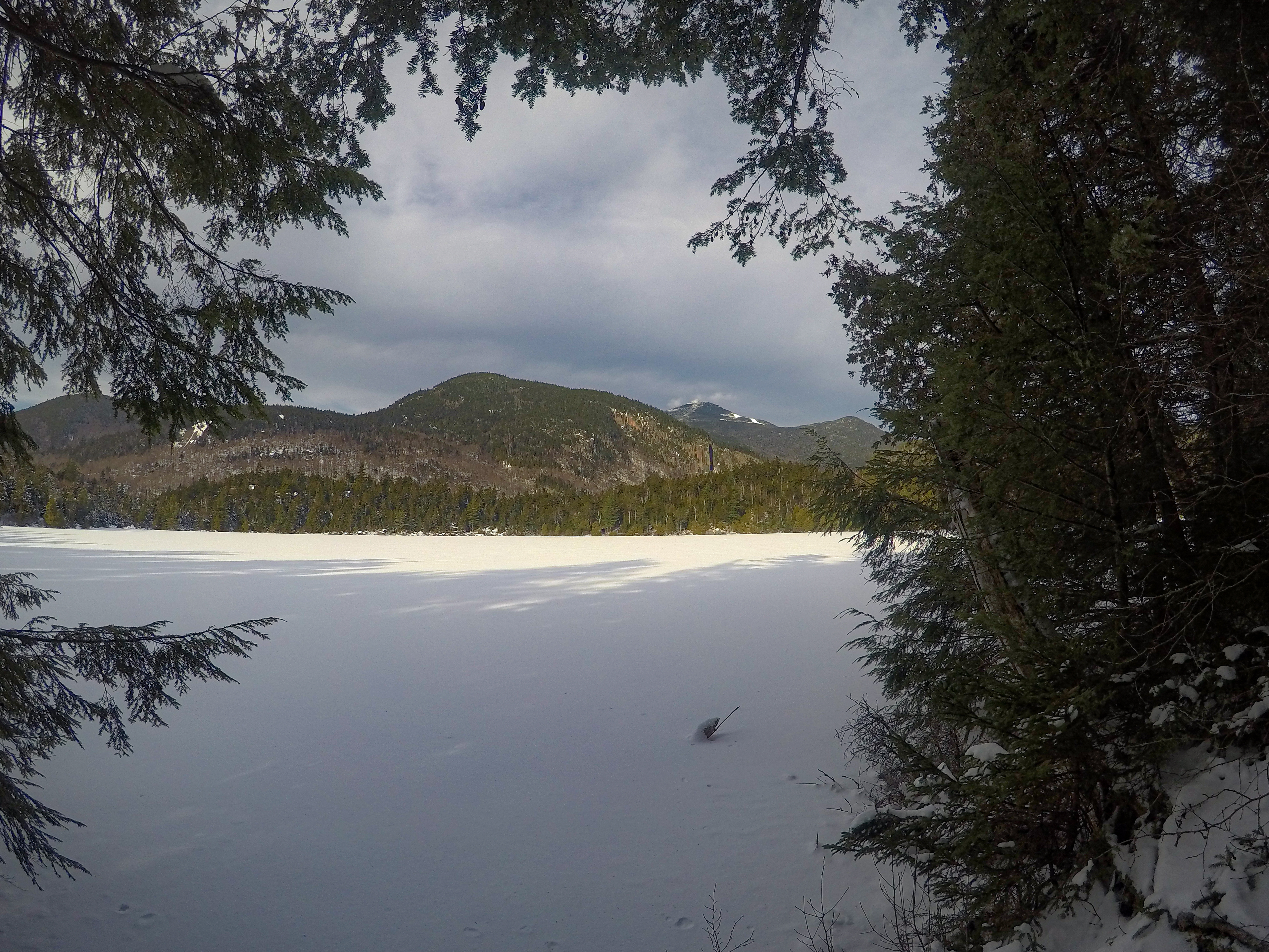
Keep warm and stay informed
Staying warm and comfortable is one of the most important facets of winter camping. It pleases me to share this information with you: if you’re cold, eat something! Your body generates heat as it digests, so if you’re feeling a little chilled, have that candy bar or snack. It’s for your own health!
Remember that this blog is just a tool that can be used to get you started. It cannot completely replace proper guidance. We recommend talking to local guides or gear shops to get first-hand advice and gear instruction from experts.
By practicing Leave No Trace ethics and taking the Love Your ADK pledge, you’re already on your way to having a safe and enjoyable winter camping trip. This winter, prepare for some fun winter camping in the snow and under the stars!

